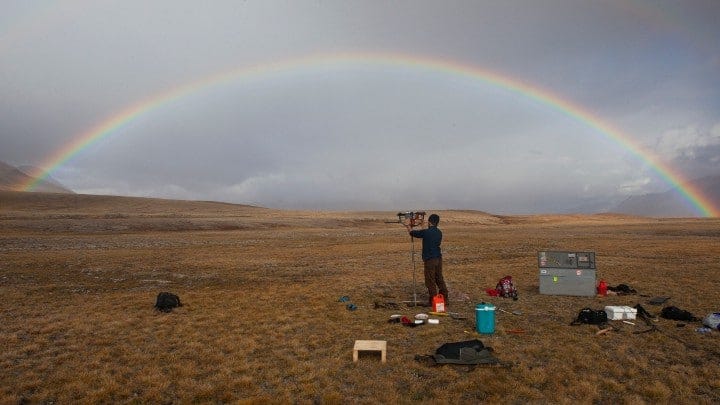‘Expedition to the End of the World’ Review: Beautiful, Contemplative and Tumultuous

The creative types aboard the Activ hope to be attacked by a polar bear. Artist Daniel Richter is visibly thrilled by the possibility, his outward sense of “bourgeois anarchist” irony barely masking the bizarre joy he gets from holding a gigantic rifle. Yet the much-anticipated bear does not show. This is the newly melted coast of Greenland, after all, …
Keep reading with a 7-day free trial
Subscribe to Nonfics to keep reading this post and get 7 days of free access to the full post archives.



